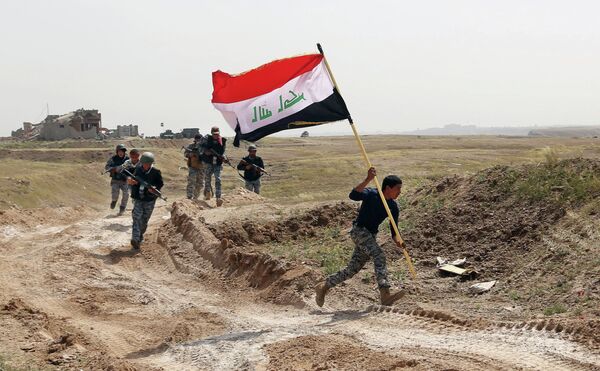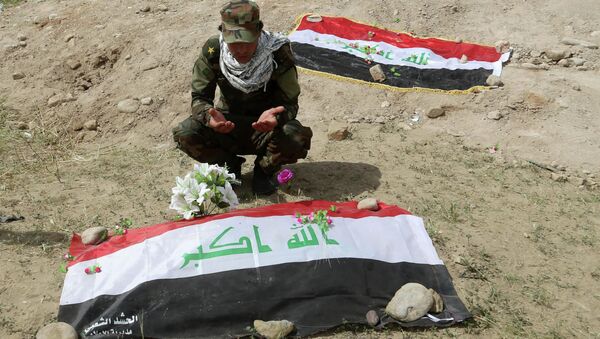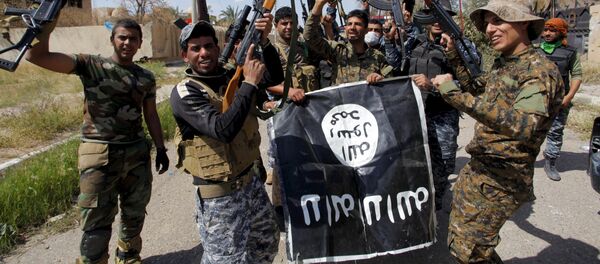The operation began on Monday, a few days after Islamic State militants were driven out of Tikrit by Iraqi forces and Shiite paramilitaries. Forensic teams started working on eight different locations inside the city’s presidential complex and have reportedly exhumed at least 12 bodies on the first day.
“The work is continuing and we expect to discover more mass graves in different areas,” Kamil Amin, a member of Iraq’s Human Rights Ministry, said to the Associated Press. “We expect huge number of bodies to be unearthed.”
Islamic State militants captured Tikrit, Saddam Hussein’s hometown, last June in a siege that epitomized the terrorist group’s brutality. Militants captured what is believed to be 1,700 Iraqi Shiite soldiers trying to flee Camp Speicher, a former US air base on the outskirts of Tikrit, before they proceeded to execute them. Graphic images of the massacre were posted on social media, showing masked gunmen loading captives on flat-bed trucks and carrying out mass executions.
The siege of Tikrit and the ensuing massacre symbolized the Islamic State’s hatred of Iraq’s Shiite majority and their growing threat in Iraq and the region, as they continued to advance and capture more territory under the auspices of creating an Islamic Caliphate. Since Tikrit, Islamic State militants have captured Mosul, Iraq’s second largest city, and parts of the Anbar province, and carried out massacres against ethnic minorities and pro-government Sunni fighters.

Iraqi State television showed the excavation of graves on Monday, with bulldozers helping forensic experts as they dig in the open area. Exhumed bodies were marked with yellow tags before being taken for lab tests. In order to identify the bodies, the tests will be matched with DNA samples provided by the relatives of around 85% of the victims.
Family members and Iraqi soldiers were shown standing nearby the sites, crying as they mourned their loved ones. Some lit candles for a vigil and laid flowers on the ground alongside the covered remains.
“It was a heartbreaking scene,” Khalid al-Atbi, an Iraqi healthcare official, said to Reuters. “We couldn’t prevent ourselves from breaking down in tears. What savage barbarian could kill 1,700 persons in cold blood?”



